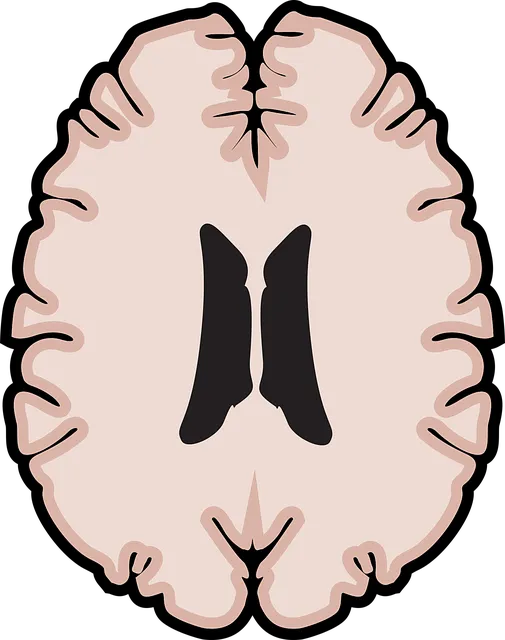Lone Tree Kaiser Permanente mental health providers leverage positive thinking exercises as a powerful tool for enhancing client well-being. These exercises, integrated into therapy, promote optimistic thought patterns, self-awareness, and gratitude, contributing to improved mental health outcomes. By offering tailored activities like gratitude lists, reframing thoughts, and mindfulness meditation, they empower patients with effective coping mechanisms. Regular reflection and measuring progress are key components of success, enabling individuals to adapt strategies for continuous growth in their journey towards a positive mindset.
“Unleash the power of positive thinking with our comprehensive guide, tailored for individuals seeking mental well-being at Lone Tree Kaiser Permanente. This article delves into the transformative potential of positive thinking exercises, highlighting their role in enhancing mental health. We explore how Lone Tree Kaiser Permanente’s mental health providers utilize these tools to support patients. Learn to navigate and choose suitable exercises aligned with your needs, and discover practical implementation strategies for daily integration. Measure your progress and unlock lasting positivity through consistent practice.”
- Understanding Positive Thinking Exercises: A Brief Overview
- The Role of Mental Health Providers in Lone Tree Kaiser Permanente
- Choosing the Right Positive Thinking Exercise for Your Needs
- Implementation Strategies: Tips for Incorporating Positivity into Daily Life
- Measuring Success and Tracking Progress with Regular Practice
Understanding Positive Thinking Exercises: A Brief Overview

Positive thinking exercises are a powerful tool for enhancing mental well-being and overall life satisfaction. These practices encourage individuals to focus on optimistic thoughts, reframing negative perspectives, and cultivating gratitude. Lone Tree Kaiser Permanente mental health providers often integrate such exercises into therapy sessions to empower clients with effective coping strategies. By promoting self-awareness and positive emotional states, these exercises can significantly contribute to improved mental health outcomes.
Self-care practices, including regular reflection and engaging in meaningful activities, form the backbone of many positive thinking exercises. The Risk Management Planning for Mental Health Professionals highlights the importance of such techniques in mitigating stress and preventing burnout. Incorporating daily self-awareness exercises allows individuals to better understand their thoughts and emotions, fostering a sense of control and resilience. This proactive approach to mental health is an essential component of holistic well-being, encouraging a positive mindset that can permeate all areas of life.
The Role of Mental Health Providers in Lone Tree Kaiser Permanente

At Lone Tree Kaiser Permanente, mental health providers play a pivotal role in fostering well-being and enhancing the lives of their patients. These professionals are equipped with specialized knowledge and skills to address various mental health concerns, from stress management and anxiety disorders to more complex conditions. They serve as guiding lights, helping individuals navigate through challenging times and offering evidence-based burnout prevention strategies for healthcare providers. By integrating mind over matter principles, they empower patients to cultivate positive thinking patterns, resilience, and coping mechanisms, ultimately improving their overall mental health awareness and quality of life.
Choosing the Right Positive Thinking Exercise for Your Needs

Choosing the right positive thinking exercise is key to enhancing your mental well-being, and Lone Tree Kaiser Permanente mental health providers can guide you in this process. Start by evaluating your current needs; whether it’s managing mood, improving self-esteem, or enhancing emotional intelligence. Each of these areas may require distinct approaches. For instance, if you’re looking to boost your mood, exercises focusing on gratitude or reframing negative thoughts could be beneficial.
On the other hand, for those seeking Self-Esteem Improvement, affirmations, and visualization techniques might be more suitable. Emotional Intelligence development could involve practicing active listening, empathy, and self-awareness through various exercises tailored to these skills. Your mental health provider can offer personalized recommendations, ensuring you select activities that align with your unique journey towards a positive mindset.
Implementation Strategies: Tips for Incorporating Positivity into Daily Life

Implementing positive thinking exercises into your daily routine can be a transformative process, and Lone Tree Kaiser Permanente mental health providers offer valuable guidance on this journey. Start by setting small, achievable goals. Incorporate gratitude practices, such as writing down three things you’re thankful for each day. This simple act can shift your perspective towards the positive aspects of life.
Additionally, practicing mindfulness meditation allows you to cultivate emotional intelligence and enhance emotional well-being promotion techniques. By being present in the moment and observing thoughts without judgment, you can develop a healthier relationship with your emotions. Lone Tree Kaiser Permanente’s Trauma Support Services also emphasize the power of self-care, ensuring that you prioritize activities that nourish your mind and body. This could include exercise, spending time in nature, or engaging in hobbies that bring joy.
Measuring Success and Tracking Progress with Regular Practice

Measuring success and tracking progress are integral parts of any positive thinking exercise. Regular practice allows individuals to gauge their mental health journey effectively. Lone Tree Kaiser Permanente mental health providers emphasize the importance of setting achievable goals and regularly assessing one’s thoughts, emotions, and behaviors. This process helps in identifying patterns that may indicate setbacks or areas requiring further focus.
By integrating mental health education programs designed with burnout prevention and crisis intervention guidance, individuals can gain valuable insights into their progress. Consistent reflection enables them to adapt strategies as needed, fostering continuous growth. Such regular practice not only enhances overall well-being but also provides a framework for recognizing improvements, no matter how subtle, ensuring a more fulfilling and resilient mindset.
Positive thinking exercises, when implemented effectively, can significantly enhance mental well-being. As discussed in this article, Lone Tree Kaiser Permanente’s mental health providers play a pivotal role in guiding individuals toward choosing and incorporating the right practices tailored to their unique needs. By regularly measuring success and tracking progress, one can harness the power of positivity to navigate life’s challenges and cultivate resilience. With consistent practice, these exercises have the potential to transform lives, fostering a more optimistic outlook and improved overall mental health.



